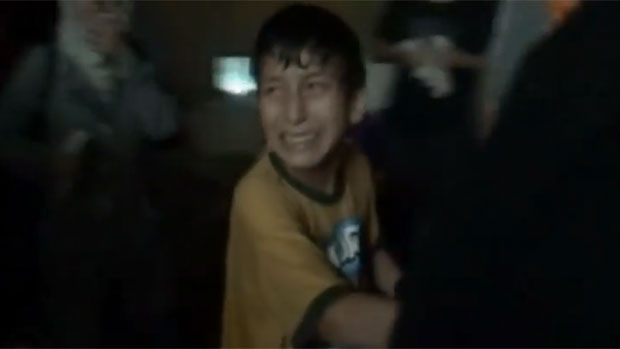Syria gas attack: death toll at 1,400 worst since Halabja
Attack on Damascus could represent most significant use of chemical weapons since Saddam attacks Iraqi Kurds

A free daily email with the biggest news stories of the day – and the best features from TheWeek.com
You are now subscribed
Your newsletter sign-up was successful
THE APPARENT gas attack on rebel-held areas of the Syrian capital Damascus may have killed as many as 1,400 people and has been described as the most significant use of chemical weapons since Saddam Hussein gassed Iraqi Kurds in Halabja in 1988.
The UN yesterday said reports of yesterday’s attack, as yet unverified, could represent a "serious escalation" in the two-year-old conflict but also called for "clarity" over the incident in the East Ghouta region of the capital. There were demands from some countries, including the US, UK and France, for UN weapons inspectors already in Syria to be dispatched immediately to the scene. However, Deputy Secretary-General Jan Eliasson said any investigation into the incident would require the consent of the Syrian government and was dependent on the security situation. According to The Times, a UN Security Council meeting ended "with little apparent agreement on the appropriate response". But the paper notes that the attack comes a year after US President Barack Obama warned Syria that any use of chemical weapons would mean crossing a "red line". The Syrian government has admitted an attack on the area yesterday, but dismissed claims that it used toxic gas, calling the allegations "lies that serve the propaganda of the terrorists". Whatever Assad’s regime may say, yesterday’s attack looks certain to prove a watershed moment. As The Independent reports, the fallout will "have a major impact on the course of the conflict... Evidence that the regime has indeed used WMDs, with such a massive number of fatalities, would greatly strengthen the hands of those pressing for large-scale supplies of advanced weapons to the rebels. "Evidence that the footage was fabricated would further dent the already fragile credibility of the disjointed opposition and weaken the position of their Western sponsors." More than 100 videos of the aftermath of the rocket attacks, which began in the early hours of Wednesday, have now been uploaded to the internet. They appear to show men, women and children suffering the effects of poisoning. Some are shown foaming at the mouth, others writhing in distress. The BBC says it is unlikely that the footage is manufactured. "While it is not clear how many died in the bombardment of the sites and how many deaths were due to any exposure to toxic substances, experts say it would be almost impossible to fake so many dead and injured including children and babies."
A free daily email with the biggest news stories of the day – and the best features from TheWeek.com
The Week
Escape your echo chamber. Get the facts behind the news, plus analysis from multiple perspectives.

Sign up for The Week's Free Newsletters
From our morning news briefing to a weekly Good News Newsletter, get the best of The Week delivered directly to your inbox.
From our morning news briefing to a weekly Good News Newsletter, get the best of The Week delivered directly to your inbox.